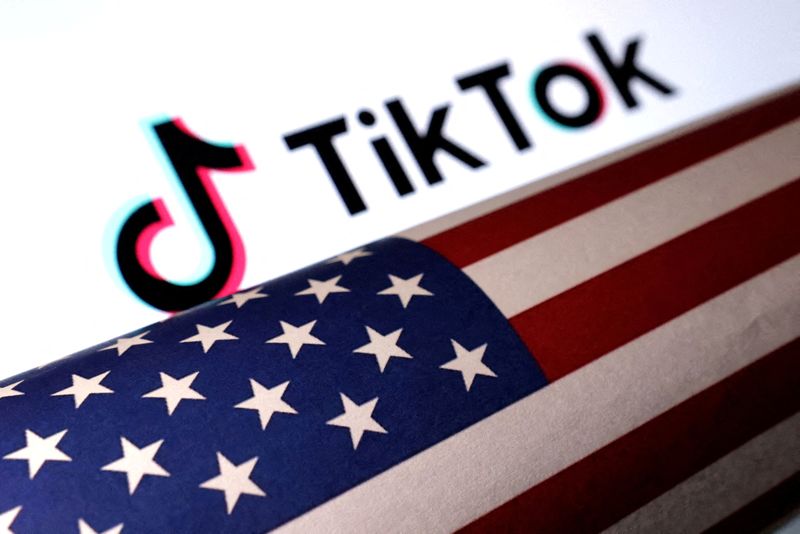US DOJ asks court to reject TikTok challenge to crackdown law

By David Shepardson
(Reuters) -The U.S. Department of Justice asked a federal appeals court late on Friday to uphold an April law requiring China-based ByteDance to sell TikTok’s U.S. assets by Jan. 19 or face a ban.
The DOJ argued in its filing that TikTok under Chinese ownership poses a serious national security threat because of its access to vast personal data of Americans, asserting China can covertly manipulate information that Americans consume via TikTok.
“The serious national-security threat posed by TikTok is real,” the department said. “TikTok provides the Chinese government the means to undermine U.S. national security in two principal ways: data collection and covert content manipulation.”
The Biden administration asked the U.S. Court of Appeals for the District of Columbia to reject lawsuits by TikTok, parent company ByteDance and a group of TikTok creators seeking to block the law that could ban the app used by 170 million Americans.
TikTok has repeatedly denied it would ever share U.S. user data with China or that it manipulates video results.
“The government has never put forth proof of its claims, including when Congress passed this unconstitutional law. Today, once again, the government is taking this unprecedented step while hiding behind secret information”, TikTok posted on social media platform X in response to the DOJ brief.
The DOJ’s filing details wide-ranging national security concerns about ByteDance’s ownership of TikTok.
“China’s long-term geopolitical strategy involves developing and pre-positioning assets that it can deploy at opportune moments,” the department said.
The government acknowledged in a separate declaration it had no information that the Chinese government had gained access to the data of U.S. TikTok users but said the risk of the possibility was too great.
“The United States is not required to wait until its foreign adversary takes specific detrimental actions before responding to such a threat,” the filing said.
PRESIDENTIAL ELECTION ISSUE
The government also filed a classified document with the court detailing additional security concerns about ByteDance’s ownership of TikTok, as well as broader declarations from the FBI, Office of the Director of National Intelligence and DOJ’s National Security Division.
ByteDance told the U.S. government that TikTok’s source code contained 2 billion lines of code making a full review impossible. “Oracle (NYSE:) estimated it would require three years to review this body of code,” excluding additional changes, DOJ added.
Signed by President Joe Biden on April 24, the law gives ByteDance until Jan. 19 to sell TikTok or face a ban. The White House says it wants to see Chinese-based ownership ended on national security grounds, but not a ban on TikTok.
The department rejected all the arguments raised by TikTok, including that the law violates the First Amendment free speech rights of Americans who use the short video app, saying the law addresses national security concerns, not speech, and is aimed at China’s ability to exploit TikTok to access Americans’ sensitive personal information.
TikTok users have “numerous other well-known platforms” such as YouTube, Facebook (NASDAQ:), Instagram, Snapchat and X that they could use instead, the DOJ said.
The DOJ added TikTok’s $2 billion plan to protect U.S. user data was insufficient, saying the company’s proposed agreement was not enough in part because U.S officials do not trust ByteDance and in the government’s “lack of confidence that it had either the resources or capability to catch violations.”
The appeals court will hold oral arguments on the legal challenge on Sept. 16, putting the issue of TikTok’s fate into the final weeks of the Nov. 5 presidential election.
Republican presidential nominee Donald Trump has joined TikTok and said in June he would never support a TikTok ban. Vice President Kamala Harris, who is poised to become the Democratic nominee, joined TikTok this week.

The law prohibits app stores like Apple (NASDAQ:) and Alphabet (NASDAQ:)’s Google from offering TikTok and bars internet hosting services from supporting TikTok unless it is divested by ByteDance.
Driven by worries among U.S. lawmakers that China could access data on Americans or spy on them with the app, Congress overwhelmingly passed the measure just weeks after it was introduced.





